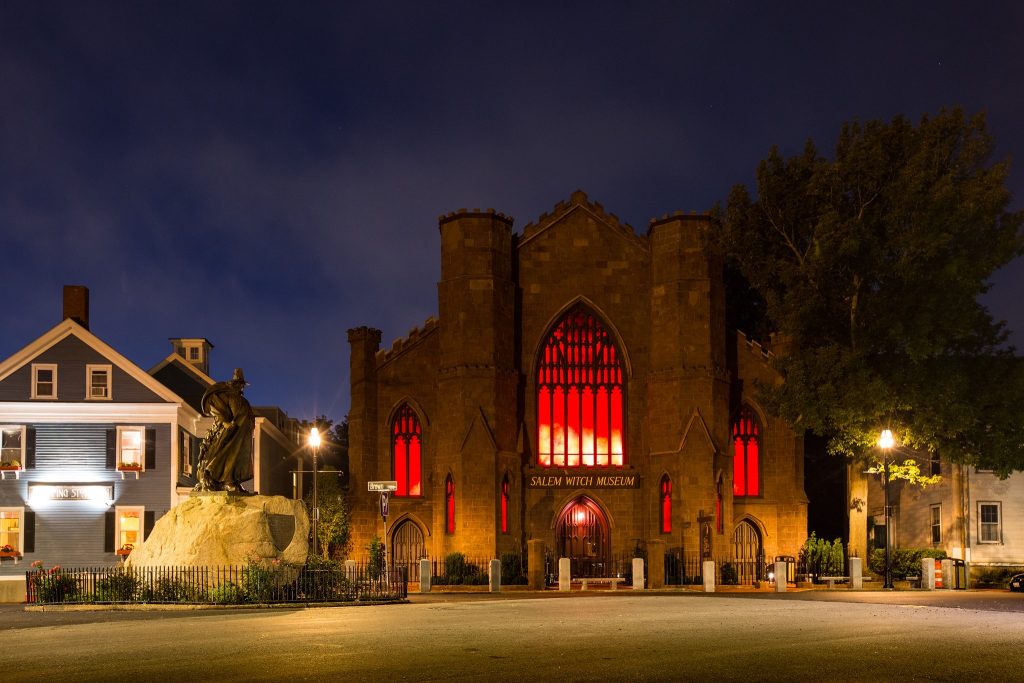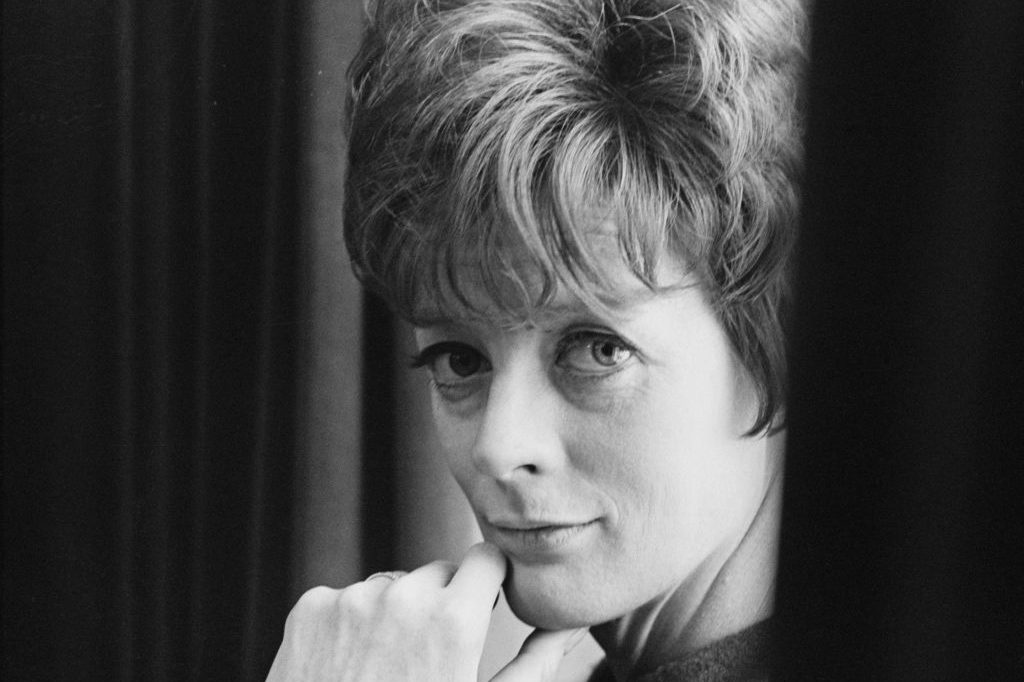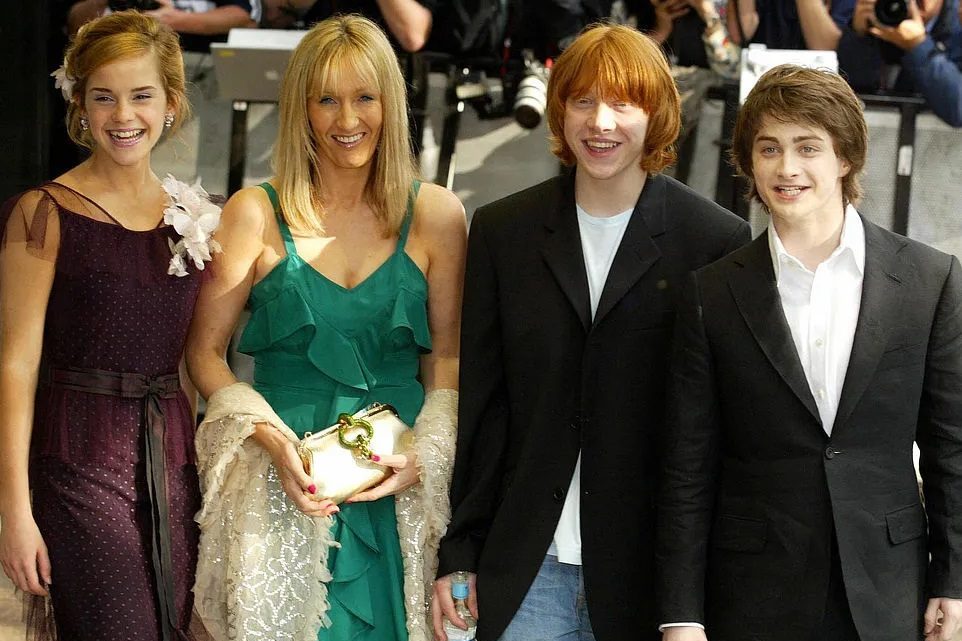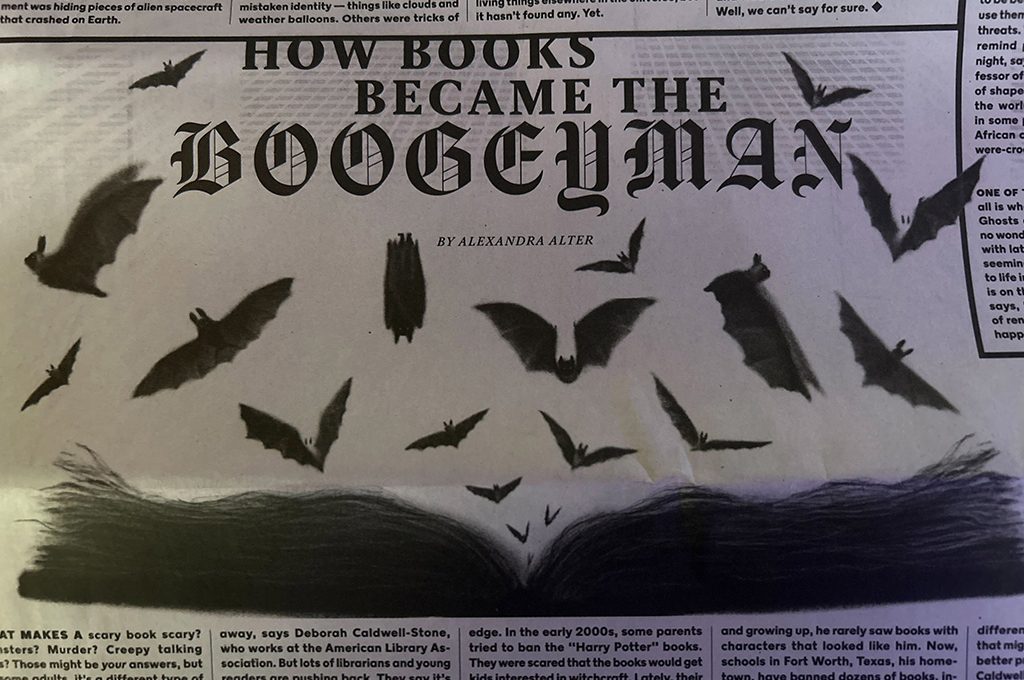‘The cultural critics,’ the late Harold Bloom wrote in 2000:‘…will, soon enough, introduce Harry Potter into their college curriculum, and The New York Times will go on celebrating another confirmation of the dumbing-down it leads and exemplifies.’How right he was. Not only are J.K. Rowling’s books widely studied by college students but ‘Young Adult’ literature is exhaustively and exhaustingly consumed by, well — adults. One 2012 study found that more than half the readers of ‘YA’ spec fiction are older than 18. As with the dominance of superhero movies at the box office, this represents a craving for the naive grandiosity of youth. Well, if it was a private indulgence it would be churlish to shake your fists about it. But the simple-minded narratives of ‘YA’ fiction have bled throughout our culture. American liberals have incessantly returned to Harry Potter as the allegorical basis for their resistance to Trump. Trump is Voldemort and they are ‘Dumbledore’s Army’. (‘Order of the Phoenix, mount up,’ tweeted Lin-Manuel Miranda, the creator of Hamilton, after Trump was elected. You might think a student of history would have had a better reference to draw upon.)A curious feature of many of the adults who enjoy books and films originally meant for children is their defensiveness. Obviously, if someone said that anyone who likes Harry Potter is an idiot I can appreciate that its admirers would feel aggrieved. But their fans often take hot offense at the idea that YA books and Marvel movies are at all distinct from literary fiction and classic cinema. Martin Scorsese was the latest to feel the wrath of comic book film fans after suggesting, in essence, that Avengers: Endgame was no Tokyo Story.The much-missed political and cultural commentator Freddie de Boer once wrote that fans of geek culture have made ‘victimization an inextricable part of its ethos’. He quoted the film critic Andrew O’Hehir commenting on one of the earlier films in the Avengers series:‘It’s a neat little postmodern trick, actually, to simultaneously position this movie as the most central pop-culture event of 2012 and insist on some kind of edgy, outsider status that renders any and all detractors as pipe-smoking William F. Buckley squares, defending a nonexistent Establishment.’Perhaps this helps to explain the YA fiction author Sarah Dessen’s furious response to a single college graduate’s criticism. One of Dessen’s books had been nominated for the Common Read program of the Northern State University, which means that every first-year student would read it. ‘She’s fine for teen girls,’ a young graduate was quoted as saying. ’But definitely not up to the level of Common Read. So I became involved simply so I could stop them from ever choosing Sarah Dessen.’ A little waspish, perhaps, but how annoyed could a wealthy and successful author be about an obscure young South Dakotan’s criticism? Very. ‘Authors are real people,’ Dessen griped on Twitter:‘We put our heart and soul into the stories we write often because it is literally how we survive in this world. I’m having a really hard time right now and this is just mean and cruel. I hope it made you feel good.’Now, to be fair, Dessen might have been going through a hard time. Success and wealth do not mean a person is spared serious problems in their personal and emotional life. Still, this was ridiculously overwrought. ‘It is literally how we survive’? Survive? I know it can be hard to make a living as a writer — trust me, I know — but I am considerably less successful than Ms Dessen and I am not exactly selling op-eds off a blanket on the street corner or approaching strangers with a fistful of grimy book reviews. ‘We put our heart and soul into the stories that we write.’ OK, fair enough, I care a lot about my work as well but that does not mean a single critic guts me like a fish.What was also absurd was the reaction of Dessen’s writer friends. ‘Fuck that fucking bitch,’ tweeted the author Shiobhan Vivian (who, to be fair, has since apologized). ‘That’s a lousy thing,’ replied the writer Roxane Gay, ‘and I’m sorry you had to see it.’ Was it an Isis beheading video or what? The novelist Jodi Picoult wrote:‘Not only does it suck because Sarah Dessen is one of the loveliest women you’ll ever meet [it sucks because] this suggests stories about young women matter less. That they are not as worthy or literary as those about anything but young women.’Note that Dessen’s young critic had not said her books were inappropriate for the program because they were about teenage girls but because she thought that they were for teenage girls. Obscuring this difference is a case of the bizarre identitarianism of many modern liberals. If some dislikes the quality of a book about teenage girls they must dislike books about teenage girls per se.To their shame, the university officials paid the danegeld and apologized, saying their former student’s words ‘do not reflect the views of the university’, and that ‘we love young adult novels.’ Harold Bloom rolled his stupendous bulk around his grave. But he laughed! A bestselling author was playing the victim in the face of a young South Dakota graduate’s criticism and the nation’s cultural figures and establishments were piling in behind her. I don’t want to respond to hyperbole with hyperbole. It is not as if Dessen was issuing death threats, and I am sure that the young woman will be fine. But as well as illustrating the bizarre sensitivities that twitch and flare up in the ‘Young Adult’ subculture, this illustrates the victim complex of writers generally. Oh, sure, most get paid a decent amount of money to do something other people do in their spare time, but we are just barely surviving and a hostile word might tip us over the edge. Ah, well, I suppose victimhood sells.
Well, if it was a private indulgence it would be churlish to shake your fists about it. But the simple-minded narratives of ‘YA’ fiction have bled throughout our culture. American liberals have incessantly returned to Harry Potter as the allegorical basis for their resistance to Trump. Trump is Voldemort and they are ‘Dumbledore’s Army’. (‘Order of the Phoenix, mount up,’ tweeted Lin-Manuel Miranda, the creator of Hamilton, after Trump was elected. You might think a student of history would have had a better reference to draw upon.)A curious feature of many of the adults who enjoy books and films originally meant for children is their defensiveness. Obviously, if someone said that anyone who likes Harry Potter is an idiot I can appreciate that its admirers would feel aggrieved. But their fans often take hot offense at the idea that YA books and Marvel movies are at all distinct from literary fiction and classic cinema. Martin Scorsese was the latest to feel the wrath of comic book film fans after suggesting, in essence, that Avengers: Endgame was no Tokyo Story.The much-missed political and cultural commentator Freddie de Boer once wrote that fans of geek culture have made ‘victimization an inextricable part of its ethos’. He quoted the film critic Andrew O’Hehir commenting on one of the earlier films in the Avengers series:‘It’s a neat little postmodern trick, actually, to simultaneously position this movie as the most central pop-culture event of 2012 and insist on some kind of edgy, outsider status that renders any and all detractors as pipe-smoking William F. Buckley squares, defending a nonexistent Establishment.’Perhaps this helps to explain the YA fiction author Sarah Dessen’s furious response to a single college graduate’s criticism. One of Dessen’s books had been nominated for the Common Read program of the Northern State University, which means that every first-year student would read it. ‘She’s fine for teen girls,’ a young graduate was quoted as saying. ’But definitely not up to the level of Common Read. So I became involved simply so I could stop them from ever choosing Sarah Dessen.’ A little waspish, perhaps, but how annoyed could a wealthy and successful author be about an obscure young South Dakotan’s criticism? Very. ‘Authors are real people,’ Dessen griped on Twitter:‘We put our heart and soul into the stories we write often because it is literally how we survive in this world. I’m having a really hard time right now and this is just mean and cruel. I hope it made you feel good.’Now, to be fair, Dessen might have been going through a hard time. Success and wealth do not mean a person is spared serious problems in their personal and emotional life. Still, this was ridiculously overwrought. ‘It is literally how we survive’? Survive? I know it can be hard to make a living as a writer — trust me, I know — but I am considerably less successful than Ms Dessen and I am not exactly selling op-eds off a blanket on the street corner or approaching strangers with a fistful of grimy book reviews. ‘We put our heart and soul into the stories that we write.’ OK, fair enough, I care a lot about my work as well but that does not mean a single critic guts me like a fish.What was also absurd was the reaction of Dessen’s writer friends. ‘Fuck that fucking bitch,’ tweeted the author Shiobhan Vivian (who, to be fair, has since apologized). ‘That’s a lousy thing,’ replied the writer Roxane Gay, ‘and I’m sorry you had to see it.’ Was it an Isis beheading video or what? The novelist Jodi Picoult wrote:‘Not only does it suck because Sarah Dessen is one of the loveliest women you’ll ever meet [it sucks because] this suggests stories about young women matter less. That they are not as worthy or literary as those about anything but young women.’Note that Dessen’s young critic had not said her books were inappropriate for the program because they were about teenage girls but because she thought that they were for teenage girls. Obscuring this difference is a case of the bizarre identitarianism of many modern liberals. If some dislikes the quality of a book about teenage girls they must dislike books about teenage girls per se.To their shame, the university officials paid the danegeld and apologized, saying their former student’s words ‘do not reflect the views of the university’, and that ‘we love young adult novels.’ Harold Bloom rolled his stupendous bulk around his grave. But he laughed! A bestselling author was playing the victim in the face of a young South Dakota graduate’s criticism and the nation’s cultural figures and establishments were piling in behind her. I don’t want to respond to hyperbole with hyperbole. It is not as if Dessen was issuing death threats, and I am sure that the young woman will be fine. But as well as illustrating the bizarre sensitivities that twitch and flare up in the ‘Young Adult’ subculture, this illustrates the victim complex of writers generally. Oh, sure, most get paid a decent amount of money to do something other people do in their spare time, but we are just barely surviving and a hostile word might tip us over the edge. Ah, well, I suppose victimhood sells.
Sarah Dessen and the thin-skinned world of Young Adult fiction
Why do so many writers have a victim complex?
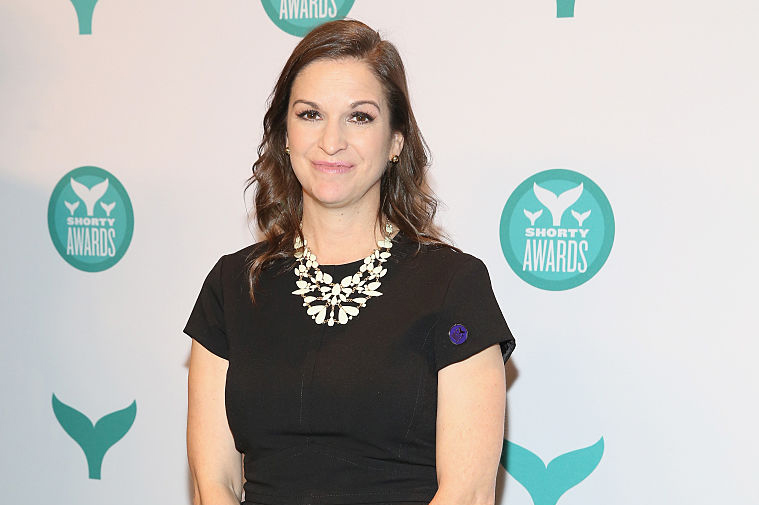
Sarah Dessen
‘The cultural critics,’ the late Harold Bloom wrote in 2000:‘…will, soon enough, introduce Harry Potter into their college curriculum, and The New York Times will go on celebrating another confirmation of the dumbing-down it leads and exemplifies.’How right he was. Not only are J.K. Rowling’s books widely studied by college students but ‘Young Adult’ literature is exhaustively and exhaustingly consumed by, well — adults. One 2012 study found that more than half the readers of ‘YA’ spec fiction are older than 18. As with the dominance of superhero movies at the box office, this represents…
Comments
Share
Text
Text Size
Small
Medium
Large
Line Spacing
Small
Normal
Large














